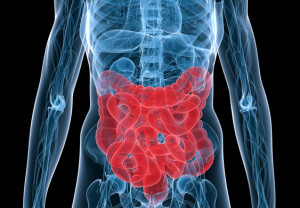“I don’t think anybody would argue that fact that we know inflammation in the body, which comes from a lot of different sources, is the basis for a lot of chronic health problems, so by controlling that, we would expect to see increased life expectancy … but if we’re not changing those things and just taking ibuprofen, I don’t know if we’re really going to make any headway in that, I feel like there are probably a lot of factors that we could change without medicating with risk.” – Josie Znidarsic
“Inflammatory Bowel Disease (IBD) is a broad term that describes conditions with chronic or recurring immune response and inflammation of the gastrointestinal tract. The two most common inflammatory bowel diseases are ulcerative colitis and Crohn’s disease. Inflammation affects the entire digestive tract in Crohn’s disease and only the large intestine in ulcerative colitis. Both illnesses are characterized by an abnormal response to the body’s immune system.” (Centers for Disease Control and Prevention).
Inflammatory Bowel Disease affects about 1 –1.3 million in the United States and its incidence appears to be increasing worldwide. IBD is a relapsing disorder with symptoms appearing, disappearing, and reoccurring repeatedly. It is characterized by diarrhea, fever and fatigue, abdominal pain and cramping, blood in the stool, reduced appetite, and unintended weight loss. IBD sufferers may lose weight and even become malnourished because they cannot properly digest and absorb food. The cause of IBD is unknown, and until we understand more, prevention or a cure will not be possible. It is most frequently treated with drugs, particularly anti-inflammatory drugs and immune system suppressors. These treatments, however, have considerable troubling side effects and patients frequently do not comply with the regimen.
There is a need for effective treatments for IBD that are safe and have few if any side effects. Since contemplative practices have been shown to reduce inflammatory responses (see http://contemplative-studies.org/wp/index.php/category/research-news/inflammatory-response/), and irritable bowel syndrome (see http://contemplative-studies.org/wp/index.php/category/research-news/ibs/) and have very few if any adverse side effects, they would seem to be appropriate potential treatments for IBD. In today’s Research News article “Mindfulness-based cognitive therapy for inflammatory bowel disease patients: findings from an exploratory pilot randomised controlled trial”
https://www.facebook.com/ContemplativeStudiesCenter/photos/a.628903887133541.1073741828.627681673922429/1138739702816621/?type=3&theaterhttp://www.ncbi.nlm.nih.gov/pmc/articles/PMC4549082/
Schoultz and colleagues perform a pilot test of the effectiveness of an 8-week Mindfulness Based Cognitive Therapy (MBCT) program for Inflammatory Bowel Disease compared to a standard care control group. They found that MBCT produced significant reductions in depression and
https://www.facebook.com/ContemplativeStudiesCenter/photos/a.628903887133541.1073741828.627681673922429/1138739702816621/?type=3&theatersizes studied there were trends toward improvements in Chron’s disease and ulcerative colitis activity. All of these effects were sustained at a 6-month follow-up.
This study was a pilot study that had only a small number of patients. This makes it difficult to detect statistically significant results. So, it is impressive that reductions in depression and anxiety were significant and attest to the robustness of these effects. This, however, should not be a surprise as MBCT was developed specifically with the treatment of depression and anxiety in mind and there is an impressive array of scientific studies verifying its effectiveness (see http://contemplative-studies.org/wp/index.php/category/contemplative-practice/mbct/).
The study is potentially very important in that there were large non-significant trends toward effectiveness in reducing IBD activity in the patients. These possible effects of mindfulness may be due to its ability to reduce inflammation and also to its ability to reduce the physiological and psychological effects of stress (see http://contemplative-studies.org/wp/index.php/category/research-news/stress/) since stress has been shown to be a trigger for flares in IBD symptoms. These results strongly suggest that a much larger controlled study is called for investigating this potentially useful treatment for IBD.
So, improve inflammatory bowel disease with mindfulness.
“All the suffering, stress, and addiction comes from not realizing you already are what you are looking for.” – Jon Kabat-Zinn
CMCS – Center for Mindfulness and Contemplative Studies
